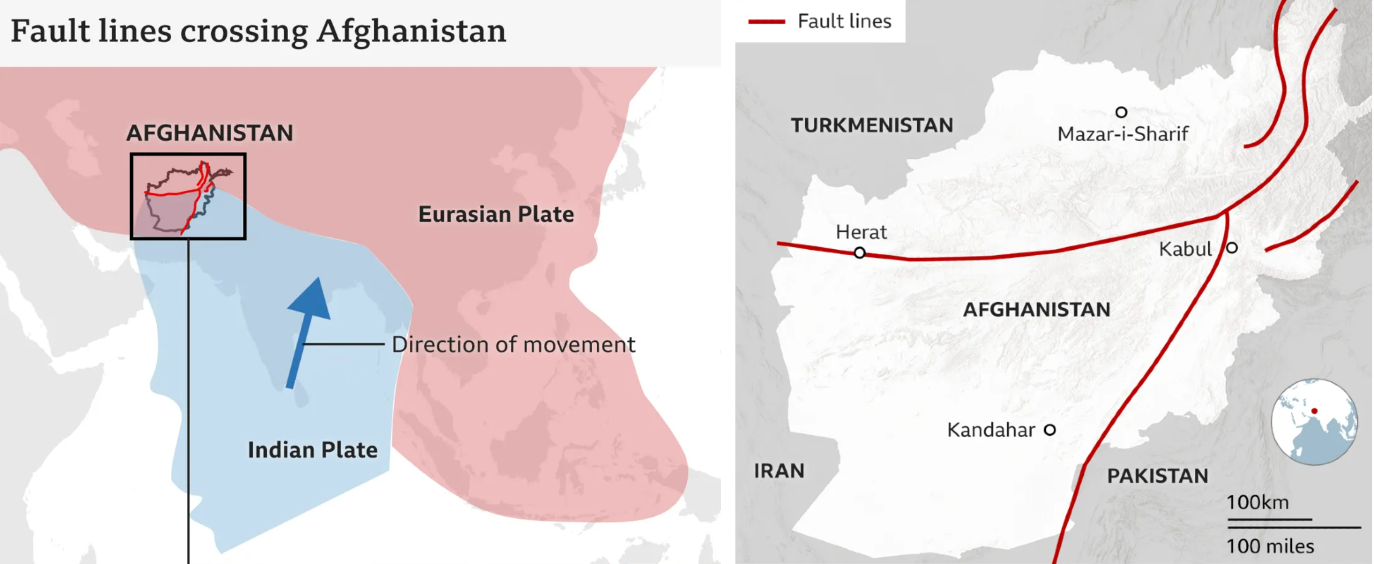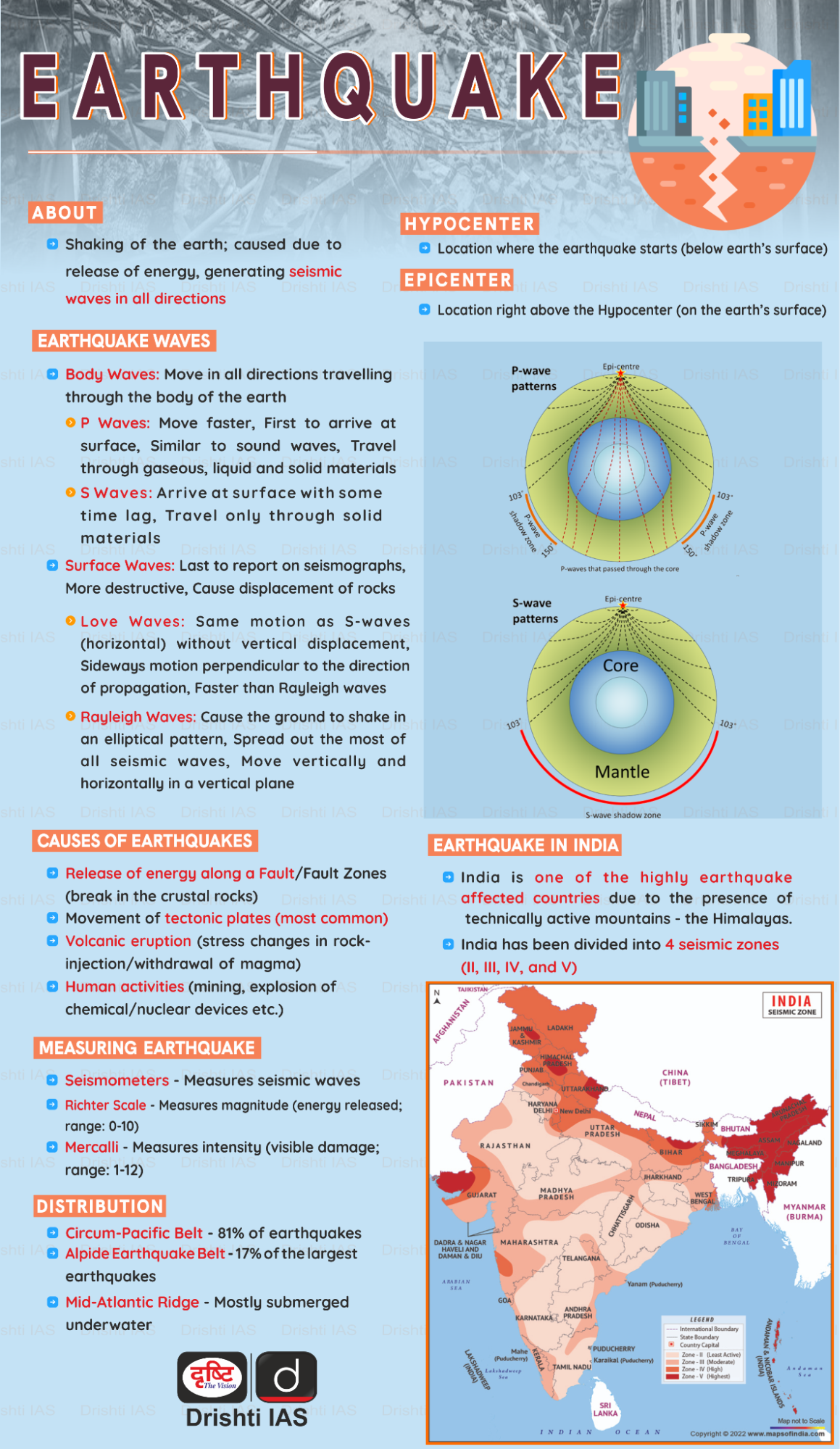Place In News
Devastating Earthquake Strikes Afghanistan
- 02 Sep 2025
- 2 min read
Afghanistan was struck by a 6.0-magnitude earthquake, killing over 800 people highlighting the country’s extreme vulnerability to seismic hazards.
Afghanistan Vulnerability to Seismic Hazards
- Afghanistan is one of the most earthquake-prone countries due to its location at the collision zone of the Indian and Eurasian tectonic plates.
- Many quakes in Afghanistan are shallow, releasing high energy at the surface, causing severe damage.
- Major Earthquake Zones:
- Hindu Kush (Northern Afghanistan): Known for both shallow and deep-focus quakes due to the sinking of the Indian Plate’s lithosphere.
- The Hindu Kush region (spans Afghanistan, Bangladesh, Bhutan, China, India, Nepal, Myanmar and Pakistan), forms part of the Alpide Belt, the world’s second most seismically active zone after the Circum-Pacific Belt.
- Since 1900, Hindu Kush region has experienced 12 earthquakes above magnitude 7, underscoring its high seismic activity.
- Sulaiman Range (Southeastern Afghanistan & Western Pakistan): Characterized by destructive shallow, thrust fault quakes.
- Hindu Kush (Northern Afghanistan): Known for both shallow and deep-focus quakes due to the sinking of the Indian Plate’s lithosphere.
- Active Fault Systems: Faults like the Chaman Fault and Main Pamir Thrust (or Pamir Frontal Thrust) are major sources of seismic activity in Afghanistan.
Afghanistan
- It is a landlocked, multi-ethnic country in South-Central Asia. Its capital is Kabul, and it shares borders with Pakistan, India, Iran, Turkmenistan, Uzbekistan, Tajikistan, and China.
- The Hindu Kush mountains dominate its terrain, with passes like Khyber and Shebar.
|
Read more: Earthquake |








